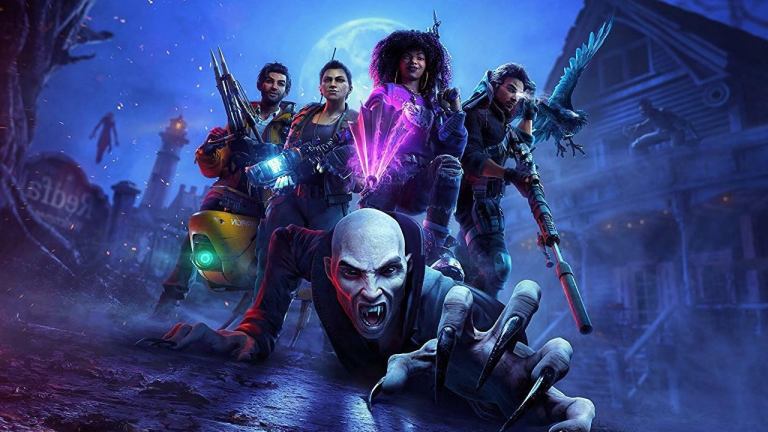Xbox Game Pass’ Best Feature Is Being Tragically Overlooked
Redfall's failures have gamers questioning the value of Xbox Game Pass, despite the fact that games like Redfall were never the service's best feature.

In case you haven’t heard, Redfall‘s recent launch did not go well. Much has been said about the game’s hilariously bad bugs, but the entire experience just has so little to offer. Recently, Xbox Head Phil Spencer even apologized for the state of Redfall. His statement speaks not just to those disappointed in Redfall but those disappointed in Xbox’s lack of compelling exclusives in recent years.
Yet, one of the biggest targets of Redfall‘s blunders has been Xbox Game Pass. As one of the first first-party exclusives to hit Game Pass in quite some time, Redfall‘s failures are also being seen as Game Pass’ failure to consistently deliver compelling new releases from Xbox and its partners. Some are going so far as to say that they see little to no value in Game Pass if they can’t consistently play worthwhile new release exclusives via the service.
Xbox certainly has a problem when it comes to exclusives. We’ve talked about that problem before, and nothing has changed since then. Yet, I find it strange to hear so many say that the value of Game Pass is so closely tied to those exclusives. For me, Xbox Game Pass’ best feature was never its collection of new releases, but rather the ways it enabled the discovery of new experiences.
“Smaller” games have always made up most of the Game Pass library. Indie titles and Double-A projects are what you’re most likely to find if you browse the service’s catalog of rotating titles. While some of those smaller games are new, they’re not the kinds of major new $70 releases that some fans are clearly clamoring for. In fact, the one thing that unites many of those titles is the ways that they kind of need the exposure that a monthly subscription service affords them.
To me, that’s always been the beauty of Game Pass. Traditionally, the two biggest hurdles preventing people from experiencing the great new games released in a given year are time and money. Time is a constant problem, but Game Pass’ $9.99 a month (or $14.99 a month) price plan is intended to directly address the money issue. For around the price of an indie new release, you have instant access to hundreds of games both new and new to you. Obvious savings aside, the real value of that proposition is the financial freedom you have to try a game and not like it.
I would have been livid if I had to pay full price for some Game Pass games like Scorn, Redfall, or Minecraft Legends. They’re not for me, and the reason I know that is because I got to play them via Game Pass. However, I never find myself thinking that I wasted $15 a month on those games. More often, I think about how that $15 a month allowed me to play the Yakuza games for the first time, let me and my partner become addicted to Overcooked 2 for a few weeks, and finally realize that Immortals Fenyx Rising has been wildly underrated this whole time.
More importantly, Game Pass allowed me to spend time with (and not extra money on) Pentiment, Immortality, Hi-Fi Rush, High on Life, Mortal Shell, and so many other recent experiences that would have otherwise struggled to cut through the noise. Those aren’t just games that feel worthwhile because I didn’t have to pay extra for them. They’re some of my favorite games in recent memory that easily justified their full prices despite the fact I didn’t have to pay them.
It’s surprising to learn that so many people don’t seem to look at Game Pass quite the same way. Based on the Redfall reactions, it seems that quite a few people measure the value of Game Pass by the number of $70 new releases they get to play through Game Pass in a given year. For them, Game Pass’ best feature isn’t the new games they got to experience but the money they saved on those major new releases that already had their attention.
The value of Game Pass’ collection of Day One new releases is undeniable (or at least should be). For me, though, the dream of a “Netflix for gaming” was always less about getting blockbusters delivered to me at a discount and more about expanding my gaming library in order to more easily justify taking a chance on something new.
Yet, much like how we all seem to know people who endlessly watch that sitcom they already love through Netflix, it seems that many people are inherently hesitant to expand their entertainment palate even when certain barriers are removed. If a high-profile game can diminish the public perception of the value of Game Pass so much more easily than dozens of constantly available (yet lower profile) worthwhile experiences can elevate it, what does that say for the future of such services and how they can facilitate a more creatively diverse gaming industry?
The Xbox team has absolutely failed when it comes to new releases. It’s a problem that has impacted their status, hardware sales, and justification for gobbling up smaller studios. Games like Redfall shouldn’t launch in the state they’re in, and Game Pass users shouldn’t have to tolerate those shortcomings because those games are part of a service.
However, Game Pass’ isn’t just about saving you $70 on new releases but showing you that not every game worth your time is a $70 new release. Game Pass isn’t perfect, but it’s past time that the value of the most valuable service in gaming history is measured by more than just blockbusters.
